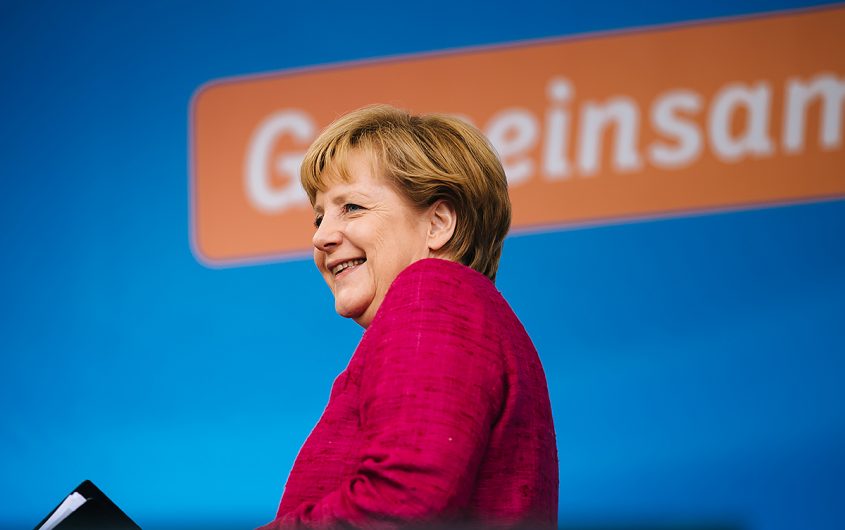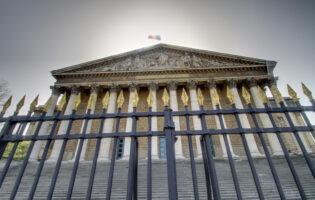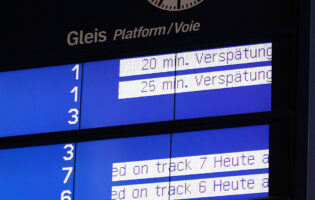
Alexander Kurz via Wikimedia Commons
Angela Merkel’s Germany

Dieter Dettke
Georgetown University
Dr. Dieter Dettke is a Non-Resident Fellow at AICGS and Adjunct Professor at Georgetown University.
Dr. Dettke served as the U.S. Representative and Executive Director of the Friedrich Ebert Foundation in Washington from 1985 until 2006 managing a comprehensive program of transatlantic cooperation. In 2006, he joined the German Marshall Fund of the United States as a Transatlantic Fellow and from September 2006 to June 2007, he was a Fellow at the Woodrow Wilson International Center for Scholars. His most recent book is “Germany Says ‘No’: The Iraq War and the Future of German Foreign and Security Policy,” published by theWoodrow Wilson Center Press and The Johns Hopkins University Press, Washington, DC, and Baltimore, 2009.
Dr. Dettke is a foreign and security policy specialist, author and editor of numerous publications on German, European, and U.S. foreign and security issues.
He studied Law and Political Science in Bonn and Berlin, Germany, and Strasbourg, France and was a Fulbright Scholar at the University of Washington in Seattle in 1967/68.
Her Legacy for the Next Government
At the end of Angela Merkel’s long career as Chancellor of Germany stands a stunning defeat for her party, the Christian Democratic Union. But her legacy is much more complex than the sudden decline of German Christian Democracy under the weight of the current political challenges as a result of the COVID-19 pandemic, difficulties managing immigration and integration, and the need to protect democratic institutions from populist and right-wing nationalist attacks shaking up German and European politics. Modernization pressure, in particular the slow pace of digitalization, quantum computing as well as other future technologies and failure to invest more aggressively in the full use of communication technologies pushed the CDU/CSU out of power. Angela Merkel was unable to stop that powerful trend.
Angela Merkel’s path to power was unconventional: a product of East Germany who led the Federal Republic of Germany; a scientist who became a politician; and a Northern German Lutheran-Protestant woman (who had been divorced) but still succeeded in ascending to the leadership of a male-dominated, mostly catholic Christian Democratic party with the strongest roots in Southern Germany. Someone capable of bridging all these gaps on the way to the top of a political party and then becoming German Chancellor for sixteen consecutive years in office has to be uniquely qualified. When Angela Merkel finally leaves office later this fall, she will have served longer than Konrad Adenauer and perhaps even Helmut Kohl as Chancellor of the Federal Republic of Germany and longer than any other female leader in elected office. That alone is an outstanding achievement. Her legacy as a leader with a low ideological profile acting above traditional party boundaries and in substance bipartisan, is clearly (and by necessity) mixed, unsurpassed only by her scandal-free integrity, humility, resolve, and calm willpower. And all this did not come without careful calculation.
How Europe will position itself in the emerging great power competition will be a key issue for the new German Government.
Her self-effacing and restrained style of crisis management reflected the duality of assertiveness and worry about the impact of German power after unification on Germany’s European neighbors. It was also in sync with the mood of the German public, which was not easy to read accurately after unification.
As Emmanuel Macron put it so eloquently, she saved Germany’s and Europe’s dignity during the refugee crisis by saying, “Wir schaffen das” (yes, we can). But at the same time, she also prepared the ground that weakened her leadership because many Germans and Europeans perceived the refugee crisis as a threat to European culture and traditions. Lack of consultation with the German Länder (states) and communities that had to deal locally with the sudden impact of accepting large numbers of refugees, as well as unsuccessful negotiations about sharing the burden of immigration on the European level, added to the lack of support for her leadership.
During Angela Merkel’s tenure as Chancellor, new geopolitical challenges emerged from a resurgent and more aggressive Russia, a rising China that turned out to be not so peaceful, as well as domestic populist and authoritarian challenges for European integration. How Europe will position itself in the emerging great power competition will be a key issue for the new German Government.
Now the pressure is on to modernize Germany and help prepare Europe for new geopolitical challenges. This will be a tall agenda. But the Germany that Merkel leaves behind is a solid and respected democracy, a solid foundation for the future.









